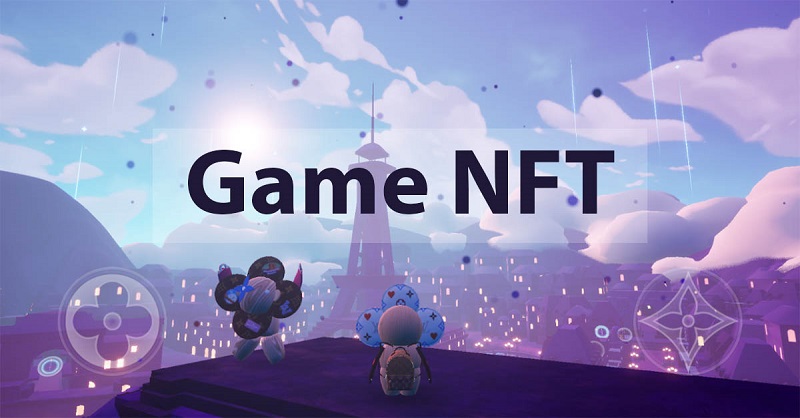
Legal Review at Taxes With NFT Game – Blockchain
Under the explosion of Blockchain and NFT Game, Vietnam is currently one of the leading countries of these games about investment capital and income from NFT Game. For example, Axie Infinity, a blockchain-based game developed by Vietnamese company Sky Mavis, has helped thousands of Southeast Asians earn money by breeding and fighting characters in the digital world. At a record period, Axie Infinity has more than a million people around the world every day, with a total market capitalization of $8.5 billion. Recently, another Vietnamese blockchain game project Sipher successfully raised $6.8 million from investment funds of the US and Korea, and before that, Faraland ($2.4 million), HeroVerse ($1.7 million).
With the “huge” revenue and investment capital from NFT Game, a concern is raised: Will the Founder Company and players on the NFT Game platform be taxed for both in terms of capital and income from NFT Game?
First of all, it can be stated that the currency used in the game and the tokens (rewards) are collectively referred to as cryptocurrencies. So, it is necessary to determine whether cryptocurrencies are assets or not to be taxed? According to the provisions of Article 105 of the Civil Code 2015, assets includes objects, money, valuable papers and property rights. Therefore, whether cryptocurrencies are considered assets under Vietnamese Civil law or not need to be assessed through the above four types of assets. However, in fact, it can be seen that Vietnamese law currently does not have a regulation on the recognition or not of cryptocurrencies. On the other hand, there are still many overlapping regulations that are difficult to apply, so there is no clear legal basis to tax both the Founder Company and the players on the NFT Game platform.
More importantly, Vietnam lacks a legal framework for cryptocurrencies and in-game tokens of blockchain gaming. Besides cryptocurrencies, items and tokens are also not considered assets. And it is clear that, if they are not assets, the trade of such items are not considered transfers of assets. Then there is no basis for taxing, we can’t collect taxes when the legal framework for certifying cryptocurrencies as assets or not, what is the tax base… has not been completed.
However, on June 15, 2021, the Government issued Decision 942/QD-TTg on the Strategy for E-Government Development towards the 2021-2025 period. Specifically, the Prime Minister assigned the State Bank to lead the research, development and pilot use of cryptocurrencies based on blockchain platform. This requirement is expected to create significant changes in the legal framework to deploy cryptocurrencies in the near future, specifically as follows:
- Firstly, cryptocurrencies should be recognized as an asset in the Civil Code
The recognition of cryptocurrencies as an asset will create a solid legal basis to determine transactions related to this type of money as assets in civil transactions to establish ownership… At the same time, creating a legal framework based on the determination of cryptocurrencies as an asset will help the authorities to better manage, effectively fight against illegal acts in the use of cryptocurrencies (such as money laundering, asset dispersal…). Besides, it also creates a basis for solving crimes about cryptocurrencies when criminal cases for theft and fraud of this type of money are increasing.
- Secondly, cryptocurrencies should be recognized are a special type of asset with conditional circulation
Admit cryptocurrencies as assets are the general trend in the world. This is not only consistent with the general theories of asset and ownership but also responds to the evolving practice of cryptocurrencies, promoting economic development in general. Philippine Finance Undersecretary Antonette Tionko stated, “Anyone making money from Axie Infinity must report their income and pay taxes”. CNBC once reported, in the summer of 2020 when people in the Philippines had to stay at home to avoid the COVID-19 pandemic, playing Axie Infinity became a way for them to make money. At one point, the number of players in the Philippines was said to account for 40% of the total number of registered Axie Infinity gaming accounts. Therefore, the game Axie Infinity became a “play for money” “fever” in this country. Finance Undersecretary Antonette Tionko said that “Cryptocurrency is an asset and it is taxed in the Philippines”, so transactions that are paid in cash or in kind, and the cryptocurrency obtained in the game shall also be taxable. However, currently, the Philippine Government has not established a mechanism to determine the value and process of tax collection from digital assets. Obviously, the Philippines has a specific legal basis to define cryptocurrencies as an asset and it is on the taxable list. As such, the Philippine Tax Authority can easily find ways to tax both players and enterprises operating on the blockchain gaming platform. As for the Vietnamese law on cryptocurrencies, in fact, many analyzes show that cryptocurrencies are a new, non-traditional asset. Therefore, Vietnam needs to legalize and define cryptocurrencies as special assets; at the same time, develop a legal framework to manage transactions related to cryptocurrencies to protect the interests of investors and consumers. When there is a specific legal framework that defines cryptocurrencies as assets, the Vietnamese Tax Authority will have a basis to tax profits arising from NFT Game in particular and cryptocurrencies in general.


